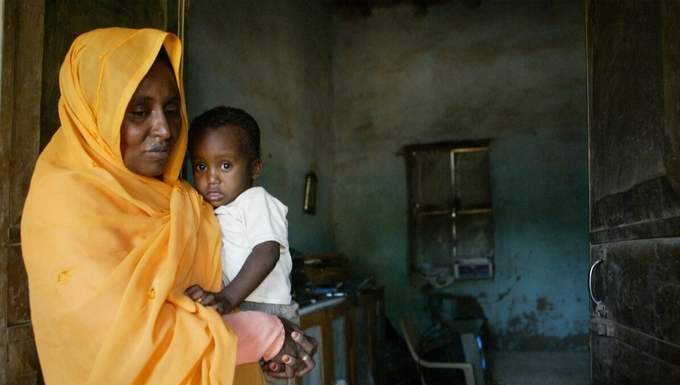November 28, 2025 | 01:25 GMT +7
November 28, 2025 | 01:25 GMT +7
Hotline: 0913.378.918
November 28, 2025 | 01:25 GMT +7
Hotline: 0913.378.918

With the conflict now in its second year, 18 million people are acutely hungry, including 3.6 million children who are acutely malnourished.
With the conflict now in its second year, 18 million people are acutely hungry, including 3.6 million children who are acutely malnourished, and famine is quickly closing in on millions of people in Darfur, Kordofan, Aj Jazirah and Khartoum.
Sudan is home to the largest number of internally displaced people in the world at nearly 10 million. A further 2 million people have escaped to neighbouring countries.
Horrific attacks against civilians – including sexual violence – as well as hospitals and schools are multiplying.
In Al Fasher, more than 800,000 civilians are bracing for an imminent large-scale attack, which would unleash catastrophic humanitarian consequences both in the city and across Darfur.
Despite the tremendous needs, aid workers continue to face systematic obstructions and deliberate denials of access by parties to the conflict. Movements across conflict lines to parts of Khartoum, Darfur, Aj Jazirah and Kordofan have been all but cut off since mid-December. The closure of the Adre border crossing in February – our main route into western Sudan from Chad – means that limited assistance is trickling into Darfur. Aid workers are being killed, injured and harassed, and humanitarian supplies are being looted.
In March and April of this year, nearly 860,000 people were denied humanitarian aid in Kordofan, Darfur and Khartoum states. Deliberate hindrances to humanitarian assistance that leave the civilian population without the essentials to survive violate international humanitarian law.
Extreme hunger is unfolding, and the outlook for food production in 2024 is bleak. We have a rapidly shrinking window to get seeds to farmers before the main planting season ends and the rainy season begins. If we act in time, people – especially those in inaccessible areas – will be able to produce food locally and avert food shortages in the next six months. Without immediate action, people will go hungry and be forced to move in search of food, shelter and protection.
Let us be clear: If we are prevented from providing aid rapidly and at scale, more people will die.
Without an immediate and major step change, we will face a nightmare scenario: A famine will take hold in large parts of the country. More people will flee to neighbouring countries in search of sustenance and safety. More children will succumb to disease and malnutrition. Women and girls, already bearing the brunt of the conflict, will face even greater suffering and dangers.
To prevent these worst-case scenarios, we, the Inter-Agency Standing Committee Principals, urgently request the parties to the conflict to do the following:
We are also concerned by the limited support from donors. Nearly five months into the year – and six weeks after the International Humanitarian Conference for Sudan and its Neighbours in Paris on 15 April – we've received just 16 per cent of the $2.7 billion we need.
Donors must urgently disburse pledges made in Paris and fast-track additional funding for the humanitarian appeal. With a famine on the horizon, we must deliver much more life-saving aid now, including seeds for farmers before the planting season ends.
(FAO)

(VAN) A new study reveals how the simultaneous effects of ocean acidification, salinity and loss of oxygen are making the world more fragile.

(VAN) Hopes are growing that the creation of the first 3D turkey gut model could be a turning point in the battle against the virulent blackhead disease.

(VAN) Tyson, America’s biggest meat supplier, plans to shutter one of its largest beef processing plants as the industry continues to struggle with low cattle supplies and political pressure from Washington.

(VAN) New FAO study shows how digital solutions are empowering farmers and fishers to prevent losses and build resilient agrifood systems.

(VAN) Brazil's COP30 presidency pushed through a compromise climate deal on Saturday that would boost finance for poor nations coping with global warming but that omitted any mention of the fossil fuels driving it.

(VAN) Poultry farmers in the UK have been warned that they could face one of the worst winters yet for bird flu.

(VAN) Prices of main-crop paddy have risen sharply, with jasmine rice hitting 16,100 baht per tonne — the highest level in years.